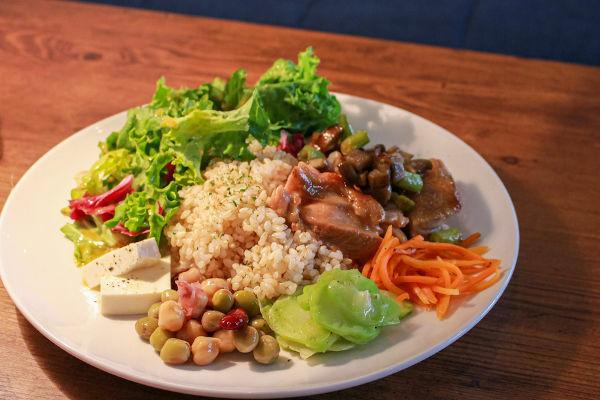One healthy eating it is one that guarantees the supply of all the nutrients necessary for our body to function. Invest in low-processed foods and reduce consumption of fats, salt and sugar are some of the measures that can improve your diet. In addition, the Ministry of Health emphasizes that it is not enough just to be careful with food to have a healthy diet. healthy, it is also essential to eat in suitable places and take the time to make eating a moment of pleasure.
Read too: Nutrients - essential for the functioning of our bodies
What is healthy eating?
Healthy eating is the one that provides all the essential nutrients for our body to function, like carbohydrates,lipids,proteins, mineral salts and vitamins. Many people believe that carbohydrates and lipids are villains when it comes to proper nutrition, however carbohydrates are an important source of energy for our body, and lipids act, among other functions, in the formation of right hormones, in the protection against mechanical shocks and in the transport of vitamins.

The key to healthy eating is balance. We cannot exclude any of the nutrients from our diet, but we must be aware of the amount we are ingesting each one of them. There is no way to make up for a lack of one nutrient by eating another in large quantities.
Another important point is to invest in variety. It is common to hear, for example, that a colorful dish indicates healthy eating. This statement is made, because the more diverse your diet, the greater amount of different nutrients is being offered to your body.
It is also important to be aware of those products that can cause problems for our health. Ultra-processed food, for example, stuffed biscuits, soft drinks and snacks usually contain large amounts of salt, sugar and fat and are low, for example, in vitamins. If we eat large amounts of these foods, we can consume excessively products that can cause damage to the body.
You can improve your diet by including foods that are known to be good for our health. Vegetables, vegetables and fruits, for example, they are rich in vitamins, fibers and mineral salts, which are related to the prevention of various diseases. Another important tip is to eat the traditional combination of rice and beans, a typical Brazilian dish that provides a complete combination of proteins to our body. Milks and derivatives are also important because they provide calcium, an important mineral salt for the strengthening of our bones.
Read too: Food Pyramid - Know the recommended servings of each type of food
Benefits of healthy eating
Healthy eating is essential for the functioning of our body, as it is from it that we get the nutrients we need for our survival. A healthy diet is related to several benefits for our body, such as improves in immunity, at the humor and on sleep quality, the increase of disposition, a regulation of our bowel and weight maintenance.
Furthermore, we must not forget that an unbalanced diet can help develop problems such as obesity, arterial hypertension, diabetes, cardiovascular disease and even certain types of cancer. Investing in proper nutrition is, therefore, investing in your health.
Read too: Dangers of childhood overweight
10 steps to healthy eating

The Food Guide for the Brazilian Population, prepared by the Ministry of Health, presents 10 simple steps to have a healthy diet. Check out the steps to follow, and adopt habits today to improve your diet and, consequently, your quality of life:
1. make of food in nature or minimally processed on the basis of food.
2. Use oils, fats, salt and sugar in small amounts when seasoning and cooking food and creating culinary preparations.
3. Limit your consumption of processed foods.
4. Avoid consuming ultra-processed foods.
5. Eat regularly and carefully, in appropriate environments and, whenever possible, with company.
6. Shopping at places that offer a variety of foods in nature or minimally processed.
7. Develop, exercise and share cooking skills.
8. Plan the use of time to give food the space it deserves.
9. Give preference, when away from home, to places that serve freshly prepared meals.
10. Be critical of information, guidance and messages about food in commercial advertisements.
By Vanessa Sardinha dos Santos
Biology teacher
Source: Brazil School - https://brasilescola.uol.com.br/saude-na-escola/alimentacao-saudavel.htm


